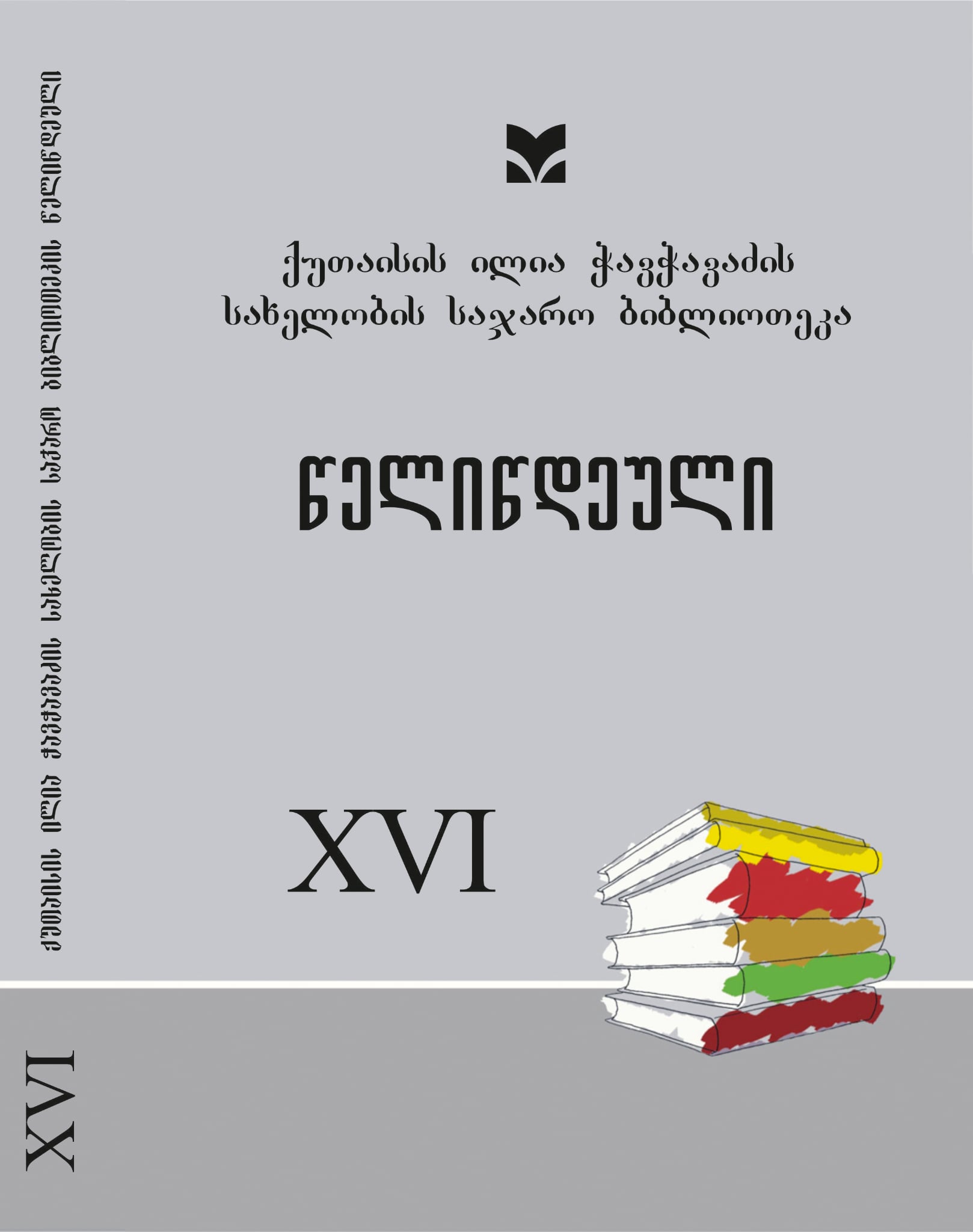Metaphorical Phraseologisms Based on Giorgi Kekelidze’s „Gurian Diaries“
DOI:
https://doi.org/10.61491/yk.16.2024.9385Keywords:
Writer’s language, Giorgi Kekelidze, Gurian dialect, metaphorical phraseologismsAbstract
Phraseologisms are an important source for linguistic research. They play a significant role in revealing the distinctive features of a language, which are connected to both socio-historical processes and individual or collective experience. In addition to reflecting a nation’s cultural and historical experience, phraseologisms demonstrate the creative potential of a language and the dynamics of its development.
The aim of this study is to examine the distinctive features of the language of the writer Giorgi Kekelidze, as reflected in his Gurian Diaries, with a focus on metaphorical (neologistic) phraseologisms. It is noteworthy that contemporary prose exhibits a tendency toward the creation of innovative and unique phraseologisms and figurative expressions, which constitute a significant segment in the artistic transformation and expression of language’s evolutionary processes. As the American linguist Edward Sapir observed, „Language is the guide to culture in social reality“ (Sapir, 1929). In this context, the creation and use of new phraseologisms can be seen as a process of cultural innovation that reflects changing social values and worldviews.
The metaphorical phraseologisms created by the contemporary Georgian writer and public figure Giorgi Kekelidze represent a significant aspect of language development. They not only enrich the language with new expressive means but also reflect contemporary society’s worldview and cultural values. They demonstrate the close connection between Georgian culture and nature and the capacity to perceive the poetic dimensions of everyday phenomena. These „newly born“ phraseologisms establish an original stylistic voice for the author. It is noteworthy that many of these expressions are not yet included in existing lexicons. Particularly significant are metaphorical phraseologisms that represent semantically parallel variants of existing phraseologisms, which can indeed be considered novel contributions of the author. For example: kanma ofli moisxa – literally „sweat poured on the skin“, meaning „he/she became frightened“; cf. tsivma oflma daasxa – „he/she became extremely frightened, agitated, trembled“ (Shavokhia, 1955: 114). ena migebt pirs? – „the inability to speak“, cf. dana pirs ver uxdes – „lifeless, overwhelmed by grief or anger, unable to speak due to sorrow“ (Shavokhia, 1950: 89).
The present study employs a contextual analysis method, drawing on semantic, lexicological, and stylistic perspectives. The material under analysis has been examined and differentiated according to semantic criteria, and conditionally divided into authorial phraseological units reflecting either natural phenomena or human inner experiences.
This research is significant not only for revealing the linguistic mosaic of the specific writer Giorgi Kekelidze but also for studying new linguistic trends in Georgian literature more broadly. Kekelidze’s language remains largely unexplored, and the study of his metaphorical, authorial phraseologisms represents a preliminary attempt in this area.




